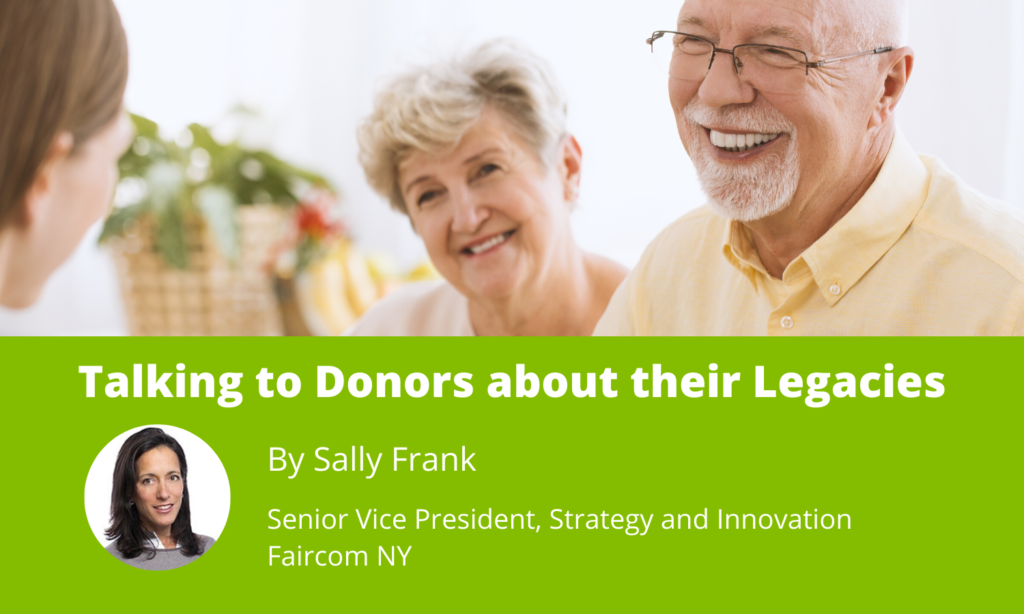As a fundraiser, you probably know that now is the time that you should be talking to your donors about planned giving and how they can name your organization in their will. But maybe you and your colleagues don’t know exactly how to do that. It’s actually easier (and more enjoyable) than you’d imagine. Just engage your donors in talking about themselves and their values! Read this to learn how. Then go for it!
Pandemics provoke different kinds of discussions. Let’s Talk about Planned Giving.
One of the inescapable realities about the COVID-19 pandemic is that people of all ages around the world have been confronted with the reality and in many cases the immediacy of death. As a society, we Americans don’t really like to talk about death—even though it is of course a fact of life and happens to all of us.
Since we have all been in quarantine, online search engine statistics are showing a huge increase in keyword searches involving death. Estate planning, will writing, planned giving are amongst the terms seeing an exponential uptick. Traffic on will-writing sites such as Freewill.com has increased substantially.
At Faircom New York, we have maintained for years that talking about planned giving to your donors is of utmost importance for your fundraising portfolio and that these conversations can in fact be uplifting, inspirational, comforting, and relationship cementing. They need not be depressing or scary. The ultimate act of kindness, compassion and relationship building is talking about the human condition with one another. Death unites us all. If we can make some sense of it, and inspire good from it, we have helped the world.
If there ever was a time for development officers, donor relationship managers and executive directors to heed our advice, it is now. The time is ripe. Your donors are ready to talk about how they wish to pass on their values, how they wish to support you even after they are no longer here.
Now that most of our clients agree, we no longer need to supply the compelling statistics and case studies. Rather, we have reached the stage of offering talking points. After all, even if people are talking about it more frequently, and even if we’re living in a pandemic, death isn’t an easy subject to discuss—particularly if we’re discussing our own death or the death of a loved one.
Here are some tips and some questions to help you ease into the discussion. The guiding principle behind all of these questions is to engage your donors about their values and beliefs.
- Thank them for the meeting and ask them some questions about their background—where did you grow up? What is/was your profession? Do you have children? Are there moments in your life that might have influenced your interest in our work?
- Ask them if they have a personal mission in life, or words that they live by.
- Do you remember why you gave your first gift to us? Was it an event in the news, an event in your life, the suggestion of a friend? How did you choose us?
- Has your interest remained the same, or has it evolved since you first gave? What interests you most now about our work?
- How would you describe what our mission means to you? We are so involved in our work every day and we state our mission statement over and over, but we’d love to hear how you understand it.
- What impact that we have is most important to you?
- What generally prompts you to give a gift to us and how do you feel after you’ve contributed?
- Do you find yourself talking about our work, and/or your involvement with it to others? If so, what do you say? How do your friends react?
- Is there anything right now that we are doing that is particularly important to you? Do you feel we’re responding in the right way?
- Is there anything that you want me to convey to our CEO or our field workers?
- Do your children know about your relationship with us? Are there charitable values or deeds that you want your children to continue once you are gone?
If you think your organization could use help in planned giving strategy, please give Sally a call at 212-727-3876 or email sally@faircomny.com.
Thanks for reading. We hope this was helpful.

